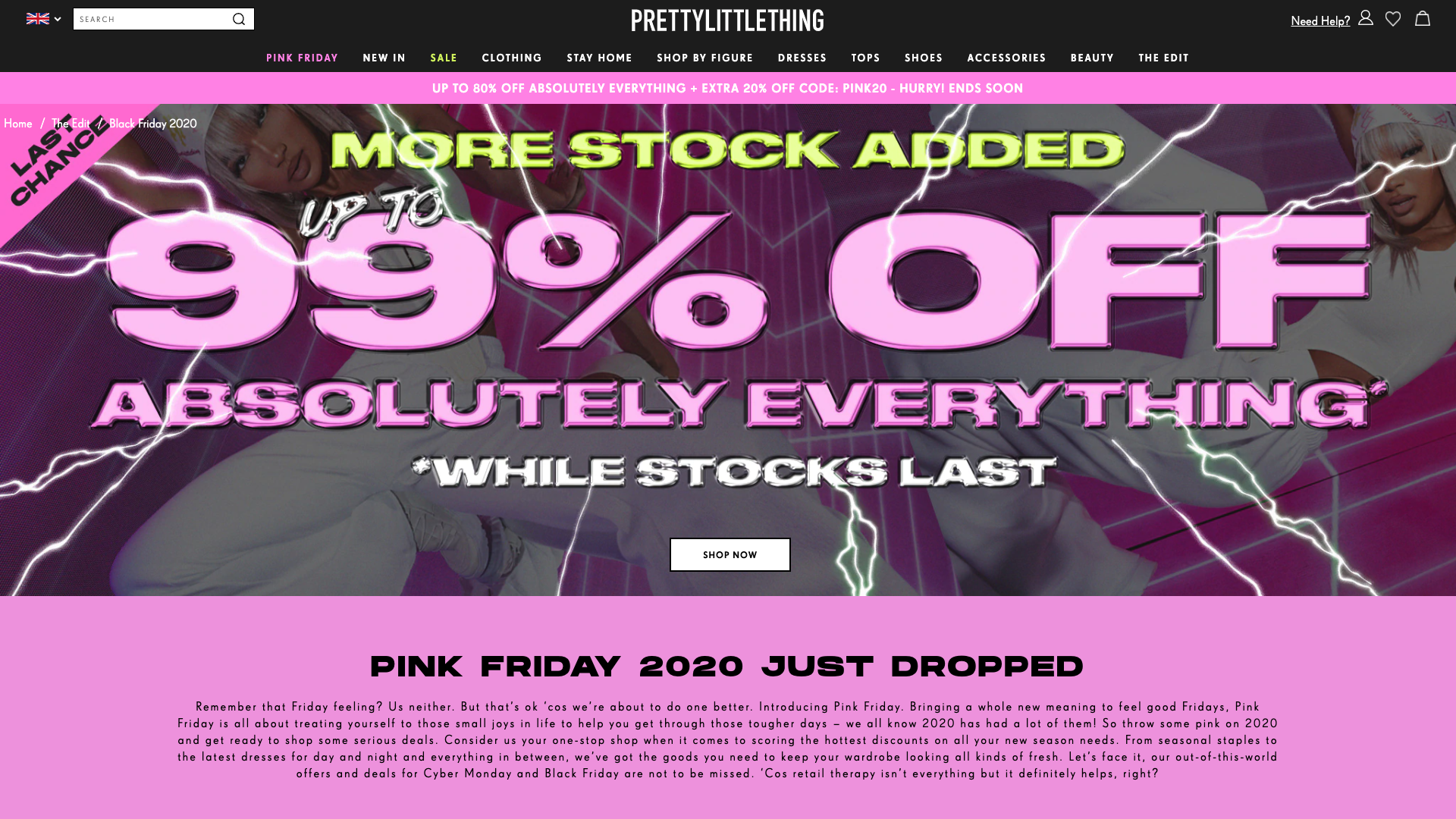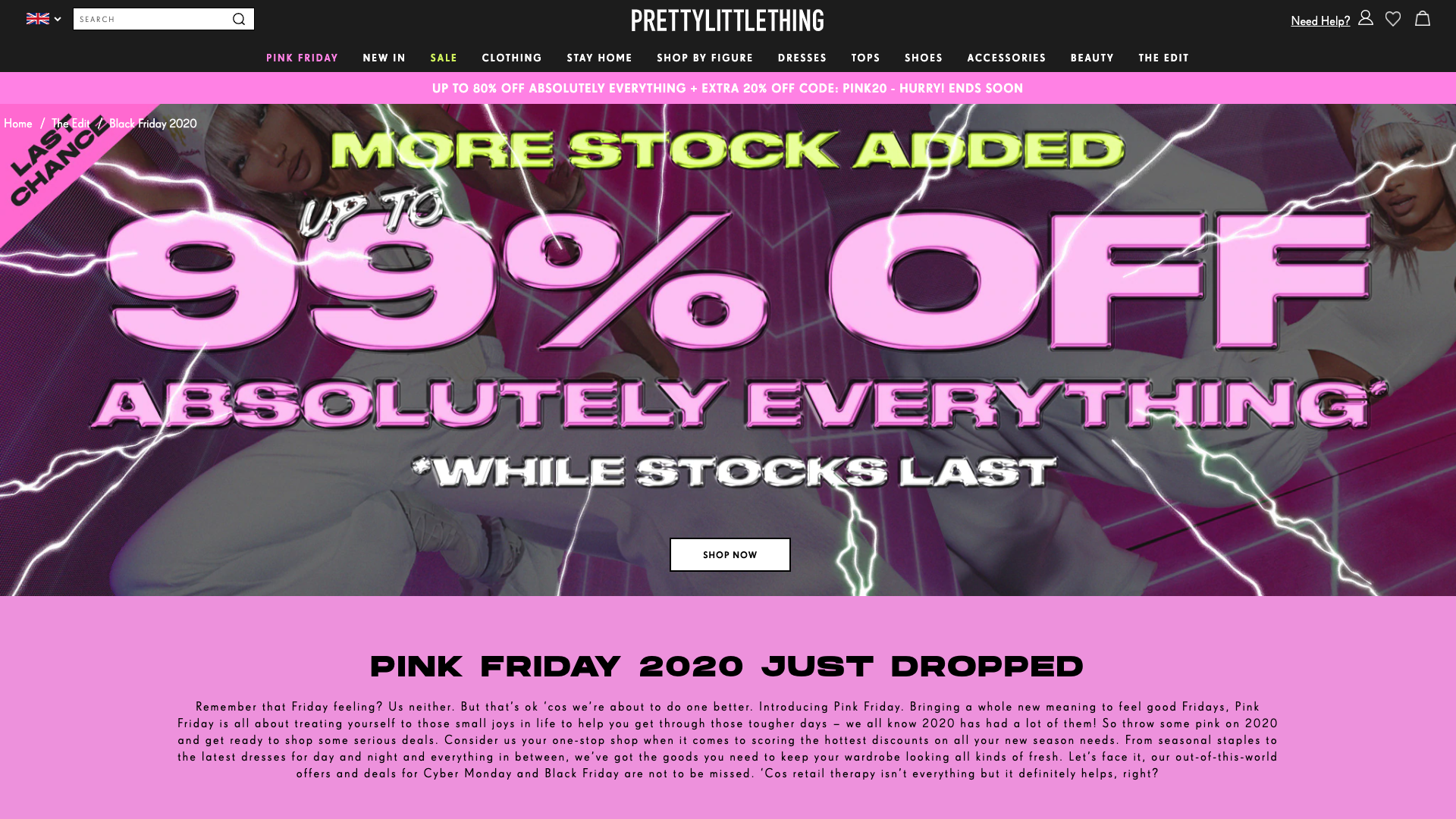
There is no denying that we are all partial to a bargain (as a student this is what I live for) however, with the increased consumption of fast fashion, these cheap clothes deals come at the cost of someone else along the chain of distribution.
Don’t get me wrong, I love online shopping as much as the next person however, recently I have turned away from fast fashion brands such as Boohoo and Pretty Little Thing firstly because I am not a fan of the quality of their clothes and secondly, because I have learned more about the brands themselves. Both brands are owned by billionaire Mahmud Kamani and it goes without saying that the Kamani family deserve a lot of credit for the portfolio of brands they have built extensively since they began in 2006. They have grown in the UK and internationally and are now a platform which serves customers right across the globe, bringing in sales of over £1billion.
Boohoo Labour Exploitation
However, earlier this year it came to light in an undercover report by the Sunday Times that Boohoo factory workers in Leicester were allegedly being paid as little as £3.50 an hour, were forced to work during the Covid-19 lockdown and in poor conditions with little social distancing. As you can imagine, this caused uproar among the media and customers and their share price began to drop as other companies such as Asos, Next and Zalando removed all the brands clothing from their websites. However, Boohoo Group responded by launching an independent review into the supply chain which supposedly found some inaccuracies with the report although there was evidence that showed codes of conduct weren’t being followed.
Paying Pennies for Clothes
This had a massive impact on Boohoo and their brand portfolio reputation however, it really struck a chord with me when I see on Black Friday that Pretty Little Thing (owned by Boohoo Group) were having a “up to 99% off sale” – sorry what? It was trending across Twitter that the site had basically sold out already with some items of clothing being reduced to as little as 25p (Yep – pennies). It’s not a hidden fact that Black Friday is a race for some companies to see who can offer the best discount, however, when the company has been subject to criticism like earlier in the year, selling clothes for as cheap as 25p doesn’t really paint an ethical picture does it?

Even though the company is worth billions and can obviously afford to do this, the question still remains “How can they sell clothes at that price?”, it makes you wonder what the human cost of that £1.60 dress is and who within the supply chain has been exploited. In my opinion, I’m not sure who thought having a sale like that was a good idea due to the recent company backlash and also, the current environmental issues as over production and consumption of textiles contributes significantly to waste.
So what?
The Black Friday situation has taught me a few things; we need to be more aware of where our clothes are coming from – if it’s being sold for a few pounds it’s probably came from a supply chain of exploitation; customers are still driven by fast fashion prices regardless of a company’s bad reputation; and that I would 100% rather pay more for a good quality piece of clothing if it was produced fairly. As well as that, it’s sad to see shops like Topshop, which used to be extremely popular, on the brink of administration as I believe people know they can get the same clothes for a fraction of the price on sites like Boohoo and Pretty Little Thing and then opt for the cheaper option.
Perhaps we can all try (myself included) to make better choices when it comes to shopping online in the new year and perhaps look at different ways to upcycle and re-wear outfits instead of buying a dress under a fiver for the sake of it being that cheap!
Shauna McKillop is a final year BSc in Communication, Advertising & Marketing student at Ulster University. She spent her placement year at The Tomorrow Lab in Belfast, where she continues to work as a digital marketing executive. Shauna can be found on: LinkedIn and Twitter.
